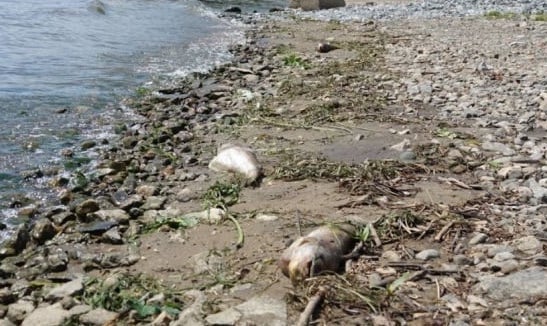A tale of two headlines – is government making it easier or harder to pollute?

AWARE News Network
On the same day, came the announcement by Environment Minister Jeff Yurek: Ontario taking action to protect the environment and hold polluters accountable. And the analysis from Keith Brooks of Environmental Defence: Ontario is making it cheaper to pollute
Take your pick..
1. Ontario is making it cheaper to pollute
Statement by Keith Brooks, Programs Director, Environmental Defence, on how changes to administrative monetary penalties will make it cheaper for Ontario industries to pollute
Despite the claim by Jeff Yurek, Minister of the Environment, Conservation and Parks, that proposed changes to administrative monetary penalties will hold polluters accountable, the changes will have the opposite effect and make it less expensive to pollute in Ontario.
The proposal in Schedule 9 of Bill 132 to eliminate daily fines and cap total fines will make it easier and cheaper for industry in Ontario to illegally dump sewage in our water, use toxic pesticides and pollute the air. Under the Water Resources Act, for example, the maximum fine used to be $100,000 per day. In Bill 132, the proposal is for it to be a maximum of $200,000 per contravention.
Reducing the fines for polluters will lead to severe consequences for the environment and Ontarians’ health.
It is highly deceptive of the Ontario government to claim that it is doing more to hold polluters accountable, when they are actually cutting the penalties polluters face. Ontario must cancel Schedule 9 of Bill 132 and actually increase the fines for polluters if the government really wants to protect the environment.
2. Ontario taking action to protect the environment and hold polluters accountable
Expansion of administrative monetary penalties to create efficient and effective environmental enforcement and support local environmental projects
TORONTO — Ontario’s government is delivering on its Made-in-Ontario Environment Plan commitment to hold polluters accountable, bring violators back into compliance quickly, and support local environmental projects. As part of the Better for People, Smarter for Business Act, we are proposing to expand the use of administrative monetary penalties to a broader range of environmental violations and reinvest the money to support projects that provide local solutions to environmental issues.
Today, Jeff Yurek, Minister of the Environment, Conservation and Parks, along with Andrea Khanjin, Parliamentary Assistant, and Prabmeet Sarkaria, Associate Minister of Small Business and Red Tape Reduction, visited Tommy Thompson Park to announce a proposal to expand the use of administrative monetary penalties to a broader range of environmental violations.
The funds collected from these penalties will be reinvested into local environmental projects under a new program, modeled on the Ontario Community Environment Fund. Funds would support community projects, such as restoring habitats of endangered species, tree planting, litter clean-up, and other priorities set in the Made-in-Ontario Environment Plan.
“Our government is committed to holding polluters accountable by ensuring strong enforcement with tough but fair penalties for violations,” said Minister Yurek. “Expanding administrative monetary penalties will give us a quick and effective tool against polluters so we can better protect the health and safety of our families, communities and the environment.”
Ontario’s current administrative monetary penalties for environmental violations are limited, leaving the government with few tools to enforce the law. This results in an overreliance on burdensome, costly, and time-consuming enforcement tools.
“Through the Better for People, Smarter for Business Act, we’re making common-sense improvements to Ontario’s regulatory framework, while safeguarding our environment for future generations,” said Minister Sarkaria. “Ontario families expect and deserve clean air, water, and an environment that is well-protected. By introducing strong penalties for environmental violations, we’re accomplishing that important goal and using regulations to make Ontario work better for our people.”
Environmental violations where administrative monetary penalties may be used under the new proposal include illegal sewage discharges into waterways, selling pesticides without a permit, failing to have a certified operator when operating a drinking water system, or violating terms of a permit to take water.
The broader use of administrative monetary penalties would provide the ministry with an effective tool to return violators into compliance with the law quickly and ensure consequences are proportionate to the violation. It would also help level the playing field between responsible businesses and those who violate environmental laws by removing potential economic benefits associated with breaking the law.
Holding polluters accountable with tougher penalties is a key part of the Made-in-Ontario Environment Plan commitment to balance a healthy economy and a healthy environment and keep our province clean and beautiful.
QUICK FACTS
Since 2010, the Ontario Community Environment Fund has committed over $1.48 million to support 81 projects in 27 watersheds.
Administrative penalties are used across government in many regulated program areas (e.g. forestry, consumer protection, energy, private colleges, waste diversion, and retirement homes).
Ontario’s current administrative monetary penalties for environmental violations are working, but are limited in scope to certain air, land, and water violations.
The proposed changes will be open for comment on the Environmental Registry for a 30-day period.









Leave a Reply